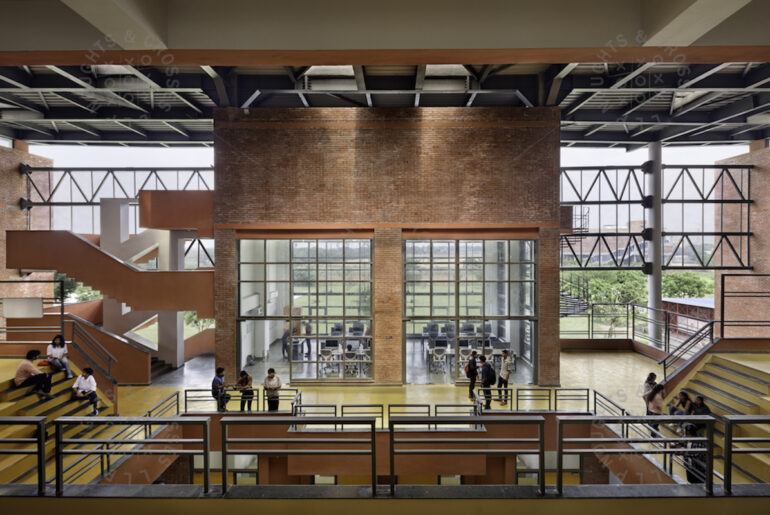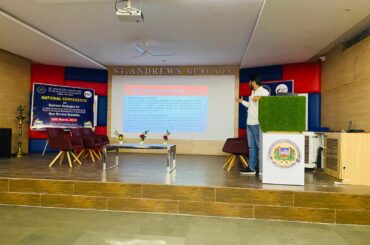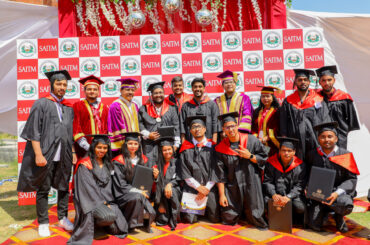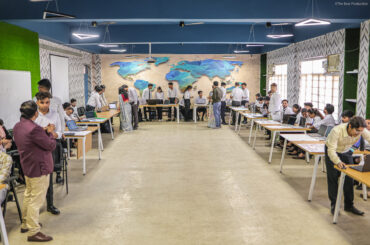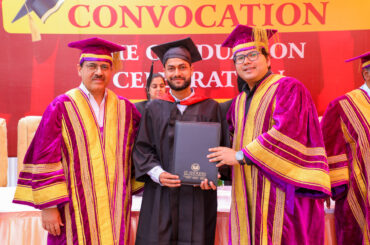Colleges in Delhi for BTech
Colleges in Delhi for BTech programs offer diverse specializations and robust academic environments. Notable institutions include Delhi Technological University (DTU), known for its strong engineering curriculum and extensive research opportunities, and Indraprastha Institute of Information Technology (IIIT Delhi), which excels in information technology and software engineering.
Netaji Subhas University of Technology (NSUT) provides cutting-edge technical education and industry connections. Colleges in Delhi for BTech, like Jamia Millia Islamia (JMI), offer a comprehensive engineering curriculum with a focus on holistic development.
Additionally, Guru Gobind Singh Indraprastha University (GGSIPU) affiliates several best engineering colleges that offer quality B.Tech programs.
Some of the most opted courses in India and St. Andrews college or different Engineering college or Management colleges are as follows:-
Introduction to BTech
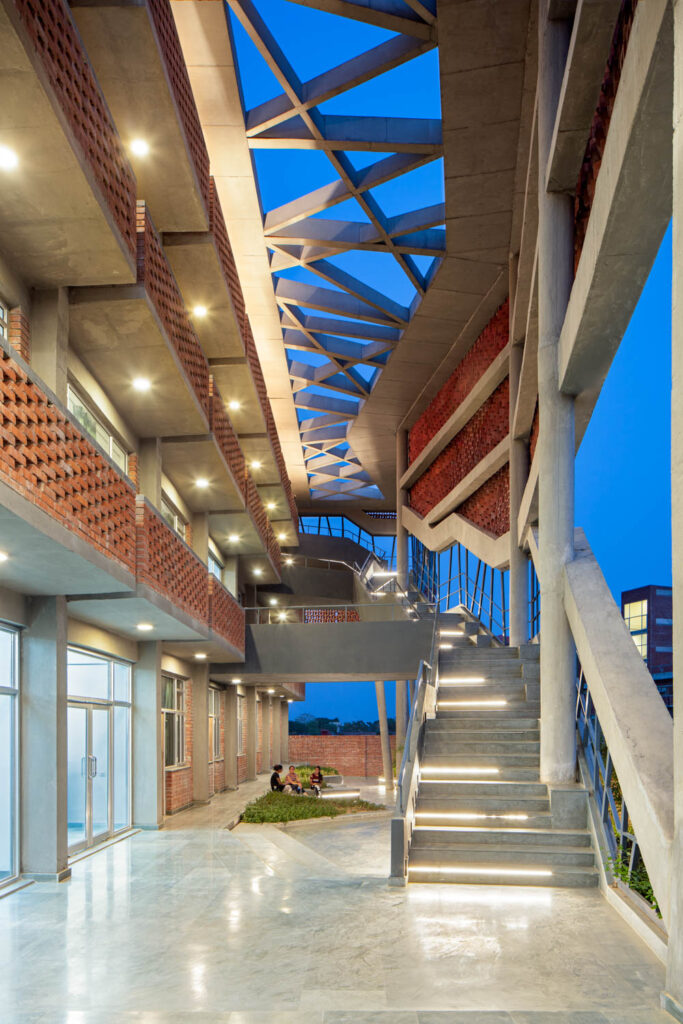
The Bachelor of Technology (BTech) is an undergraduate academic degree focused on engineering and technology disciplines. Spanning four years, this program combines theoretical knowledge with practical application, preparing students for diverse careers in engineering and technology fields.
BTech offers specializations such as Computer Science Engineering, Mechanical, Civil, Electrical, and Electronics Engineering, among others.
The curriculum includes foundational courses, advanced technical subjects, and hands-on projects, fostering innovation and problem-solving skills.
Graduates from Colleges in Delhi for BTech can pursue careers in industries, research, and higher studies, equipped with the expertise to contribute to technological advancements and address complex engineering challenges.
BTech Admission Process
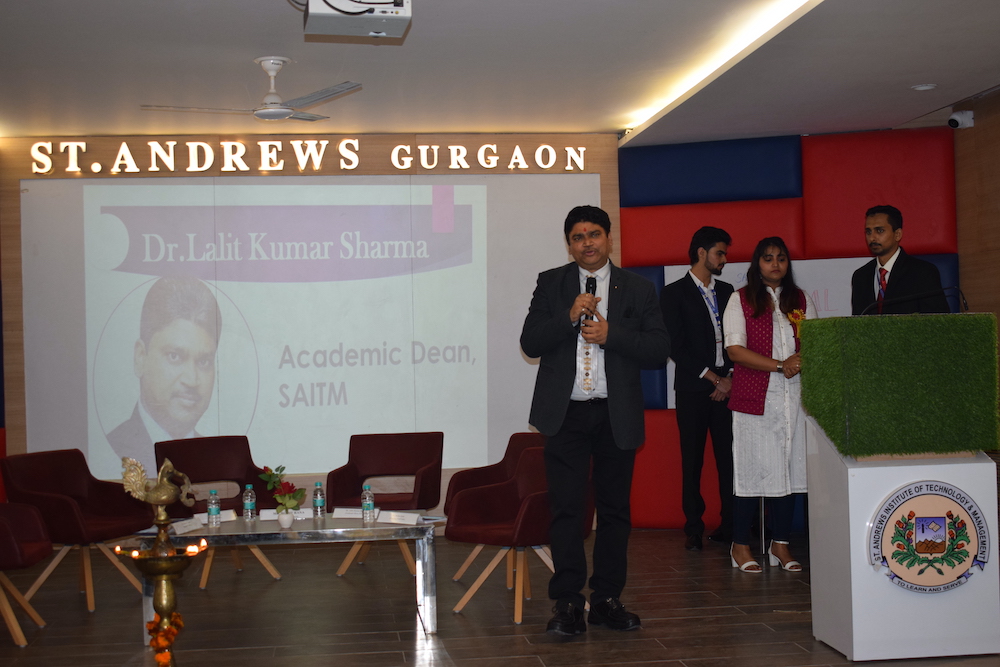
The admission steps for BTech programs in India can vary by institution, but generally, it follows these steps:
Eligibility Criteria
- Completion of 10+2 or equivalent with Physics, Chemistry, and Mathematics (PCM) as core subjects.
- Minimum percentage requirements can vary by institution but usually range from 50% to 60% aggregate in PCM.
Entrance Exams
- Many institutions require entrance examinations such as JEE Main, JEE Advanced, or state-specific engineering entrance examinations.
- Some private universities and colleges conduct their own entrance tests (e.g., BITSAT, VITEEE).
Application Process
- Fill out the application form for the chosen entrance exam or college/university.
- Pay the application fee as required.
- Submit necessary documents, including academic transcripts, identification proof, and sometimes a passport-sized photograph.
Entrance Exam
- Take the entrance exam on the scheduled date.
- Results are usually announced a few weeks to a couple of months later.
Counseling and Seat Allocation
- Based on entrance exam scores, candidates participate in counseling sessions.
- Seats are allocated according to the rank and preferences of the candidate.
Admission Confirmation
- Once a seat is allocated, confirm the admission by paying the required fee and completing the admission formalities at the allotted college.
Document Verification
- Submit original documents for verification at the college.
Commencement of Classes
- Attend the orientation program and begin classes as per the academic calendar.
BTech Eligibility Criteria
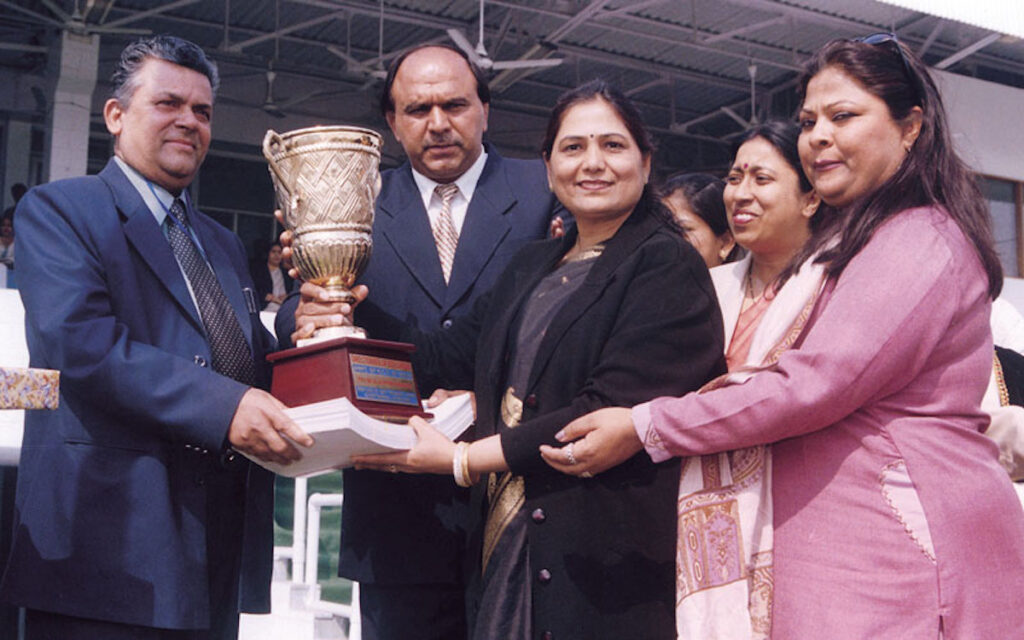
The eligibility criteria for BTech programs in India typically include the following:
Educational Qualification
- Completion of 10+2 or its equivalent from a recognized board.
- The core subjects should include Physics, Chemistry, and Mathematics (PCM). Some programs might also accept students with a background in Biology if it’s relevant to the specialization.
Minimum Marks
- A minimum percentage is often required in the 10+2 examinations. This percentage can vary by institution but is usually between 50% and 60% in the aggregate of PCM subjects.
Age Limit
- There may be an age limit for certain entrance exams or institutions. Typically, candidates should be below 25 years of age, though this can vary.
Entrance Exam
- Many institutions require candidates to clear an entrance exam such as JEE Main, JEE Advanced, or a state-specific exam.
- Some private institutions conduct their own entrance exams (e.g., BITSAT, VITEEE).
Additional Criteria
- Some institutions may have additional requirements such as interviews, group discussions, or specific minimum scores in entrance examinations.
- For specific branches or specializations, additional criteria might apply.
Fee Structure of BTech
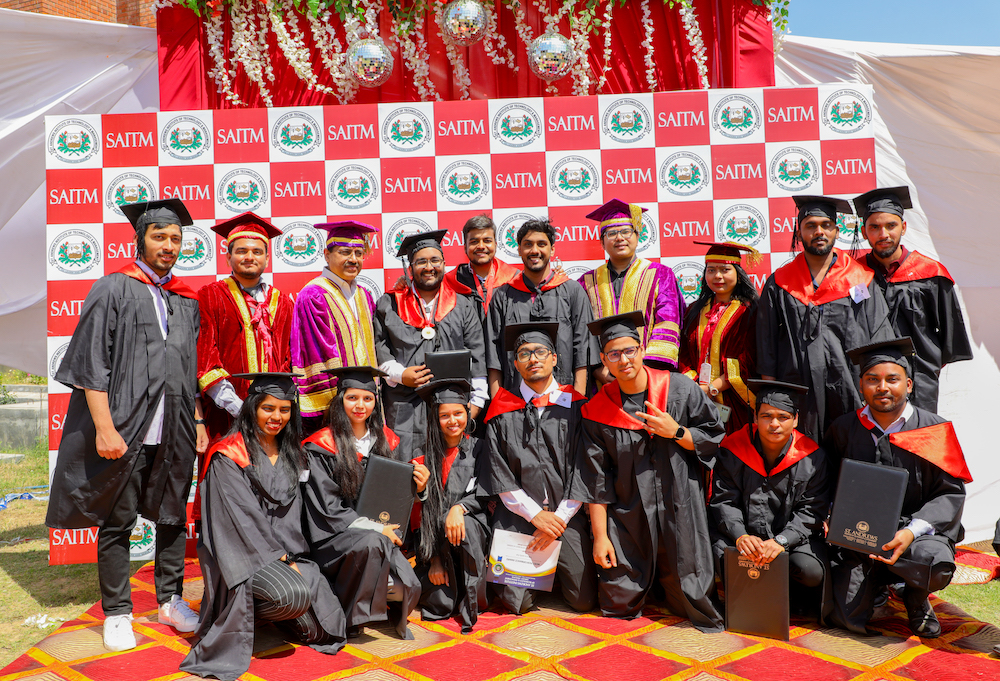
Here’s a general overview of BTech Fee Structure:
Government Engineering Colleges
- Tuition Fee: ₹30,000 to ₹1,00,000 per year.
- Additional Fees: Registration, examination, library, lab, and other miscellaneous fees, which can add up to ₹10,000 to ₹30,000 per year.
- Hostel Fees (if applicable): ₹20,000 to ₹50,000 per year.
Private Engineering Colleges
- Tuition Fee: ₹1,00,000 to ₹5,00,000 per year. Top private engineering colleges might charge more.
- Additional Fees: Similar to government colleges, including registration, examination, library, and lab fees, ranging from ₹20,000 to ₹50,000 per year.
- Hostel Fees (if applicable): ₹30,000 to ₹1,00,000 per year, depending on the facilities provided.
Top Engineering Colleges
- Institutions like BITS Pilani, VIT, and Manipal University and St. Andrews Institute of Technology & Management (SAITM), Gurgaon generally have higher fees, which can range from ₹1,00,000 to ₹4,00,000 per year.
Entrance Exam for Btech
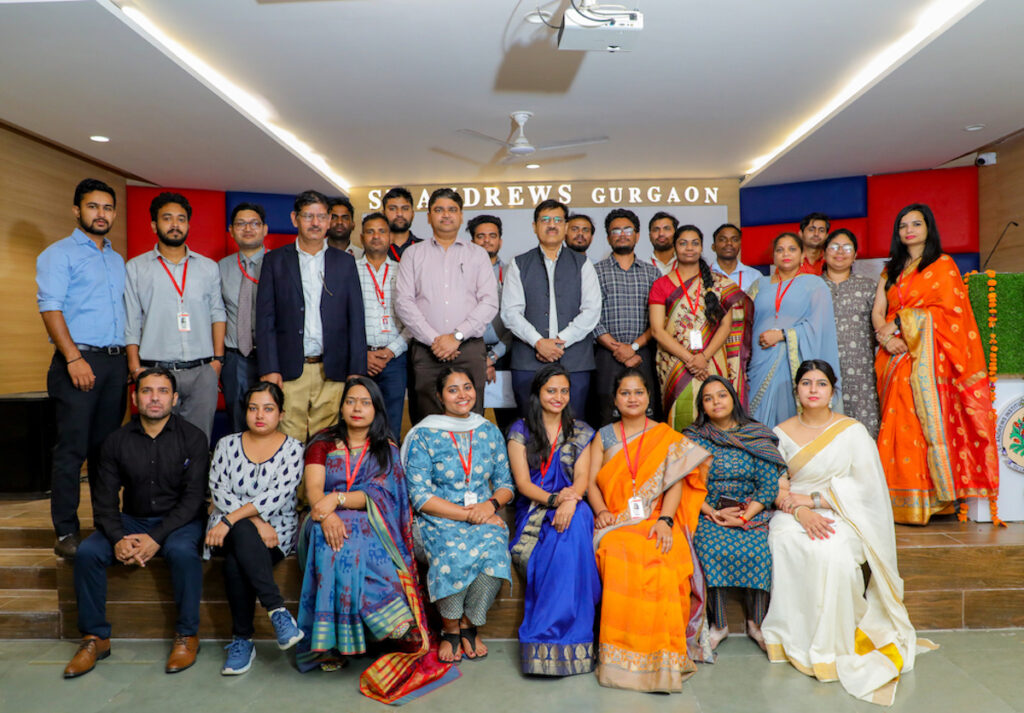
Here’s an overview of major entrance exams for BTech admissions in India:
JEE Main
- Purpose: National-level exam for admission to NITs, IIITs, and other central institutions.
- Subjects: Physics, Chemistry, Mathematics.
- Frequency: Conducted twice a year.
JEE Advanced:
- Purpose: For admission to IITs, requires qualifying JEE Main first.
- Subjects: Physics, Chemistry, Mathematics.
- Frequency: Annually.
BITSAT
- Purpose: Entrance test for BITS Pilani and its campuses.
- Subjects: Physics, Chemistry, Mathematics, English, and Logical Reasoning.
- Frequency: Annually.
VITEEE
- Purpose: For admission to VIT University and its campuses.
- Subjects: Physics, Chemistry, Mathematics, English.
- Frequency: Annually.
State-Level Exams
- MHT-CET: Maharashtra for various engineering colleges.
- KCET: Karnataka for admission to state engineering colleges.
- TNEA: Tamil Nadu for admission to Tamil Nadu engineering colleges.
Delhi Top Engineering Colleges
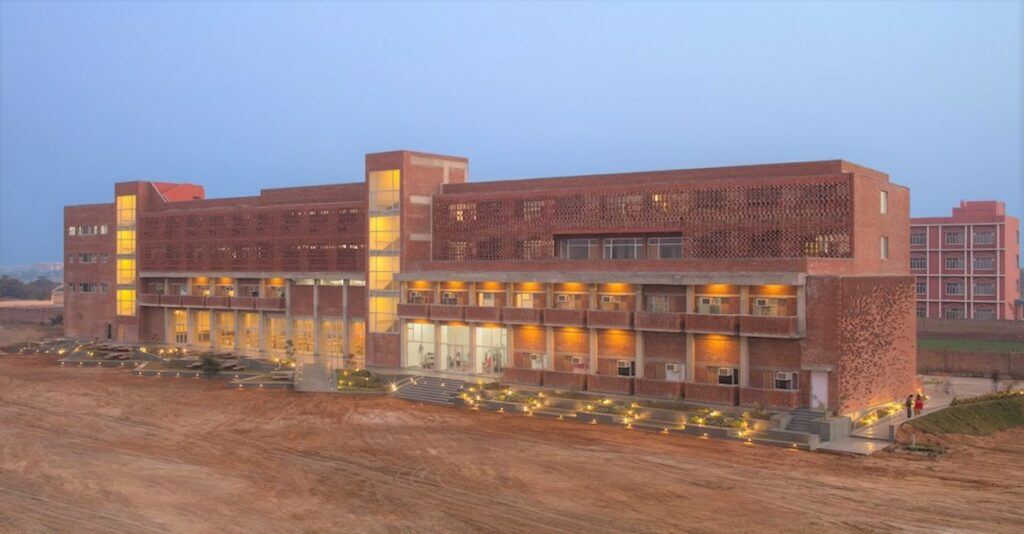
Here’s the updated list of top engineering colleges in Delhi:
Indian Institute of Technology Delhi (IIT Delhi)
- Overview: One of the premier engineering institutions in India, known for its high academic standards and research.
- Specializations: Various engineering fields.
St. Andrews Institute of Technology and Management (SAITM)
- Overview: A private institution known for its focus on providing quality engineering education and modern facilities.
- Specializations: Various engineering fields.
Delhi Technological University (DTU)
- Overview: Renowned for its engineering programs and strong industry connections.
- Specializations: Various branches including Computer Science, Mechanical, Civil, and Electrical Engineering.
Netaji Subhas University of Technology (NSUT)
- Overview: Known for its focus on technical knowledge and research.
- Specializations: Computer Science, Electronics, Mechanical, and other engineering fields.
Indira Gandhi Institute of Technology (IGIT)
- Overview: A well-regarded engineering college under the Delhi Government.
- Specializations: Various engineering fields.
Jamia Millia Islamia (JMI)
- Overview: A prominent university offering strong engineering programs.
- Specializations: Various branches including Civil, Mechanical, and Computer Engineering.
Shiv Nadar University (SNU)
- Overview: A private university with a focus on research and innovation in engineering.
- Specializations: Various engineering fields.
Top Govt Colleges for BTech
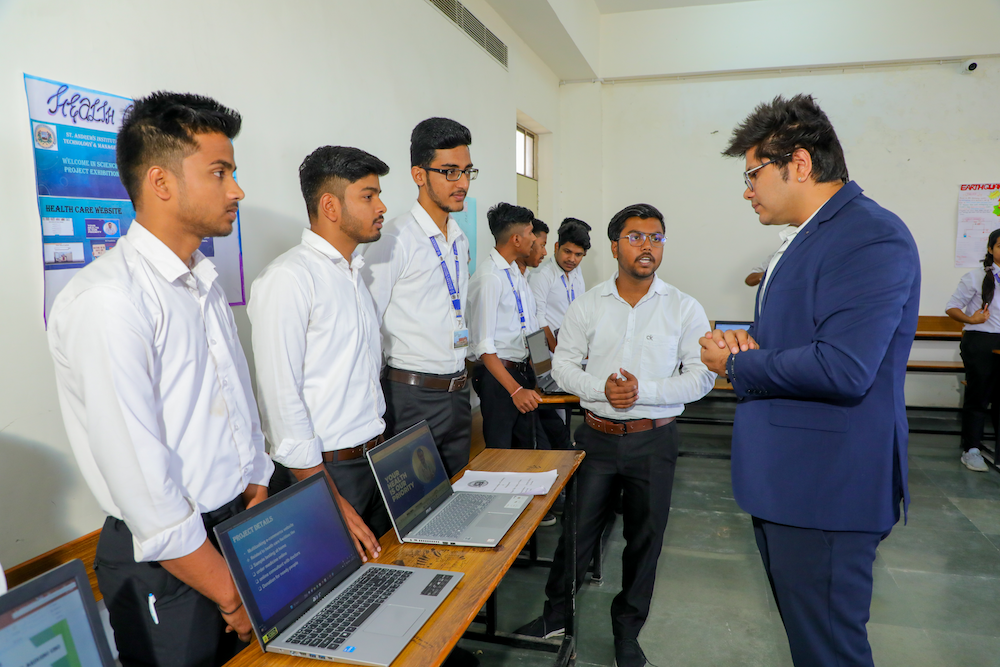
Here’s a list of some of the top government B.Tech colleges in India:
1. St. Andrews Institute of Technology and Management (SAITM)
- Location: Gurgaon, Delhi NCR
- Highlights: Offers various specializations in B.Tech, known for its industry connections and placement opportunities.
2. Delhi Technological University (DTU)
- Location: Delhi
- Highlights: Renowned for its engineering programs and research facilities. Strong placement record and industry links and one of the best engineering college
3. Netaji Subhas University of Technology (NSUT)
- Location: Delhi
- Highlights: Known for its quality education in engineering and technology. Offers a variety of specializations and one of the top engineering college.
4. Jawaharlal Nehru Technological University (JNTU)
- Location: Hyderabad, Telangana
- Highlights: Offers a broad range of engineering courses with good infrastructure and research opportunities.
5. Indian Institute of Information Technology (IIIT) – Hyderabad
- Location: Hyderabad, Telangana
- Highlights: Centrally funded technical institutes are renowned for their rigorous academic programs, cutting-edge research, and excellent placement opportunities.
6. Punjab Engineering College (PEC)
- Location: Chandigarh
- Highlights: Offers a range of engineering disciplines and is known for its academic excellence and research.
7. Dr. B.R. Ambedkar National Institute of Technology (NIT)
- Location: Jalandhar, Punjab
- Highlights: Provides a variety of engineering programs with a focus on research and development.
Top Private Colleges for BTech
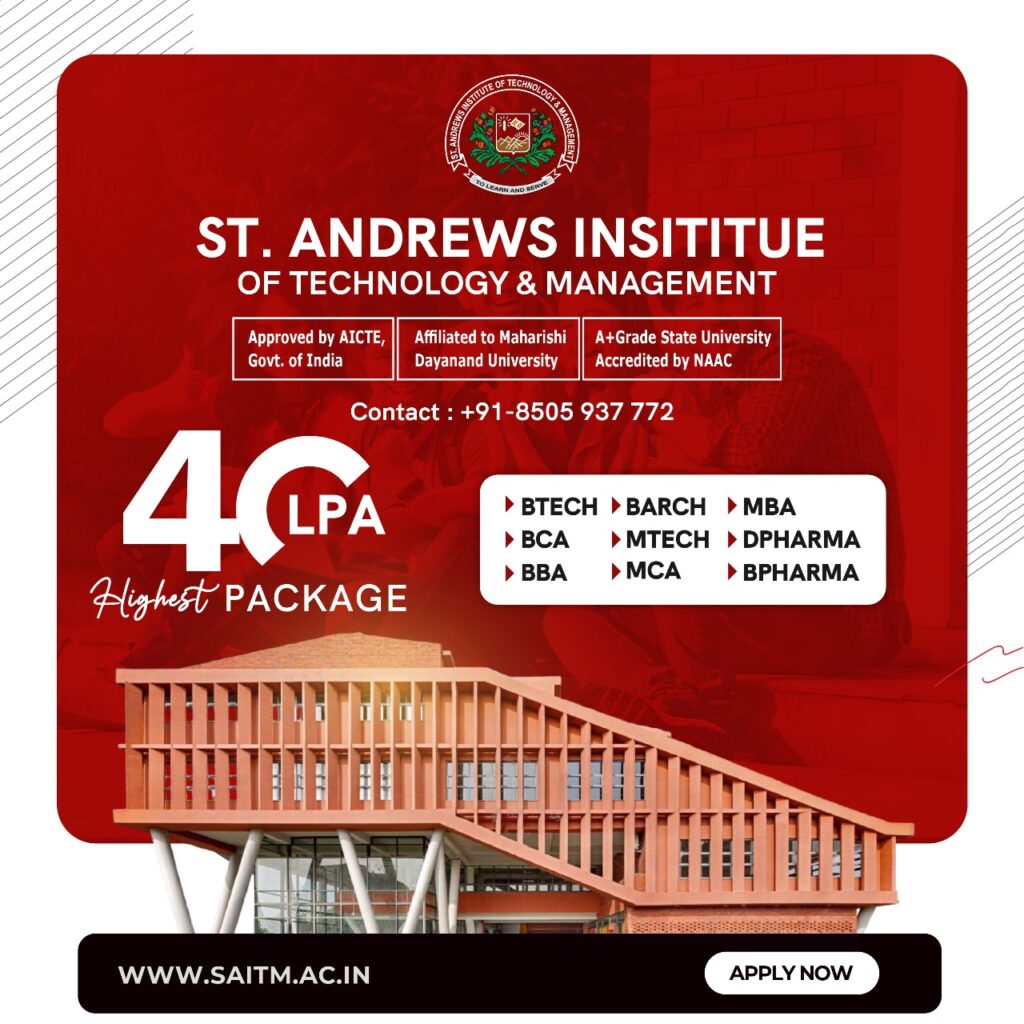
Here are some of the top private engineering colleges for B.Tech in India, along with their locations and highlights. Colleges in Delhi for BTech are renowned for their excellent faculty, modern infrastructure, and strong industry connections.
Vellore Institute of Technology (VIT)
- Location: Vellore, Tamil Nadu
- Highlights: Renowned for its state-of-the-art infrastructure, diverse student body, and strong placement records. Offers a variety of specializations in B.Tech.
St. Andrews Institute of Technology and Management (SAITM)
- Location: Gurgaon, Haryana
- Highlights: Offers a variety of specializations in B.Tech with good infrastructure and placement support. Focuses on practical learning and industry exposure
Birla Institute of Technology and Science (BITS) Pilani
- Location: Pilani, Rajasthan
- Highlights: Known for its high academic standards, innovative teaching methods, and excellent placement opportunities. Has campuses in Goa, Hyderabad, and Dubai as well.
Thapar Institute of Engineering and Technology
- Location: Patiala, Punjab
- Highlights: One of the oldest and most prestigious engineering institutes in India. Known for its robust curriculum and strong placement network.
Amrita Vishwa Vidyapeetham
- Location: Coimbatore, Tamil Nadu
- Highlights: Offers a broad spectrum of btech courses with a focus on research and development. The university is also known for its collaborations with international institutions.
Sastra Deemed University
- Location: Thanjavur, Tamil Nadu
- Highlights: Offers a variety of engineering programs with strong emphasis on research and innovation. Has a good placement record and industry tie-ups.
Shiv Nadar University
- Location: Greater Noida, Uttar Pradesh
- Highlights: Known for its interdisciplinary approach, modern infrastructure, and focus on research and innovation. Offers a comprehensive B.Tech program.
BTech Specializations
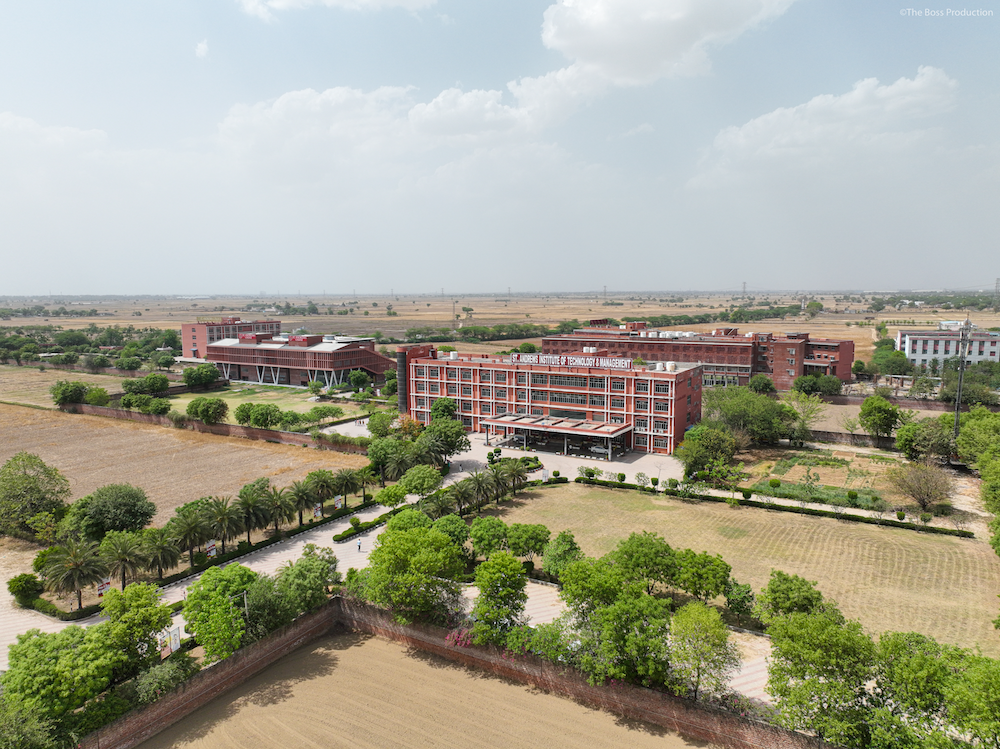
Here are some common btech specializations:
Computer Science and Engineering (CSE)
- Focuses on computer systems, software development, algorithms, and data structures.
- Includes fields like artificial intelligence, cybersecurity, and data science.
Information Technology (IT)
- Emphasizes software applications, IT infrastructure, and management of IT services.
- Includes fields like network administration, database management, and web development.
Mechanical Engineering
- Deals with the design, analysis, and manufacturing of mechanical systems.
- Includes fields like thermodynamics, robotics, and materials science.
Civil Engineering
- Focuses on infrastructure projects like buildings, bridges, and roads.
- Includes fields like structural engineering, environmental engineering, and geotechnical engineering.
Electrical Engineering
- Covers electrical systems, electronics, and electromagnetism.
- Includes fields like power systems, control systems, and communication systems.
Electronics and Communication Engineering (ECE)
- Involves the design and development of electronic devices and communication systems.
- Includes fields like embedded systems, VLSI design, and optical communications.
Chemical Engineering
- Focuses on the design and operation of chemical processes and production systems.
- Includes fields like process engineering, biochemistry, and materials science.
Aerospace Engineering
- Deals with the design and development of aircraft and spacecraft.
- Includes fields like aerodynamics, propulsion, and avionics.
Biotechnology
- Combines biology and technology to develop products and technologies for healthcare and agriculture.
- Includes fields like genetic engineering, bioinformatics, and pharmaceutical technology.
Environmental Engineering
- Focuses on developing solutions for environmental problems and sustainable practices.
- Includes fields like water treatment, waste management, and environmental impact assessment.
Production Engineering
- Emphasizes manufacturing processes and systems management.
- Includes fields like operations management, quality control, and industrial automation.
Structural Engineering
- A subset of civil engineering focused specifically on the design and analysis of structures.
- Includes fields like seismic engineering, bridge engineering, and structural dynamics.
Industrial Engineering
- Focuses on optimizing complex systems and processes in industries.
- Includes fields like supply chain management, ergonomics, and systems engineering.
Best Engineering Colleges in Delhi
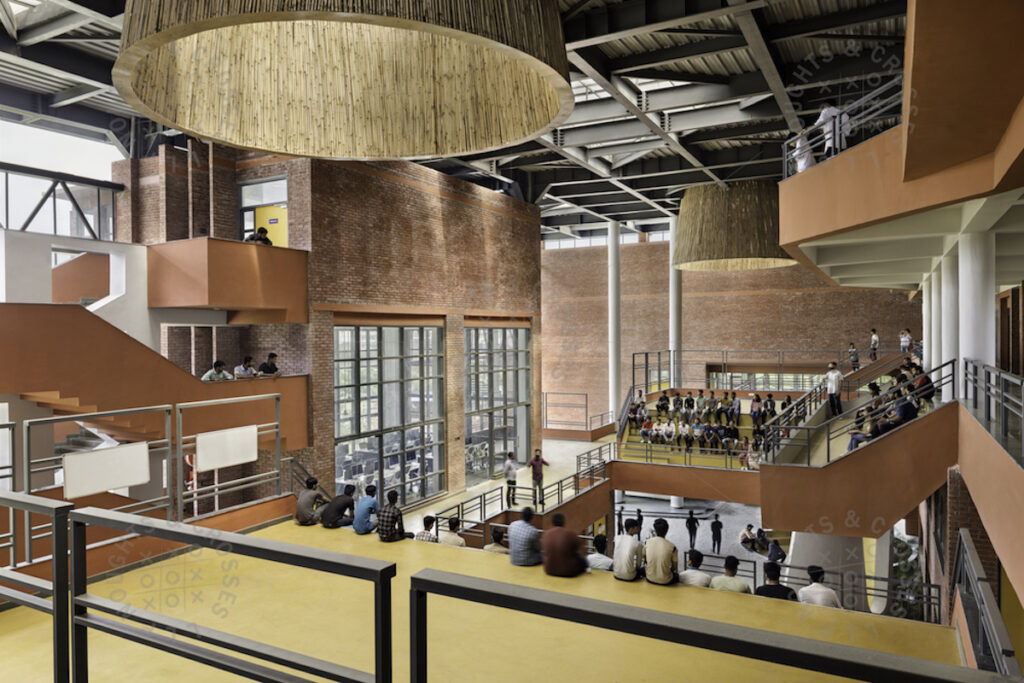
Here are some of the best engineering colleges in Delhi:
Indian Institute of Technology Delhi (IIT Delhi)
- Highlights: One of the top engineering institutions in India, known for its cutting-edge research, excellent faculty, and strong industry connections.
Delhi Technological University (DTU)
- Highlights: Formerly known as Delhi College of Engineering (DCE), DTU is renowned for its robust academic programs, industry linkages, and innovation in engineering education.
St. Andrews Institute of Technology and Management (SAITM)
- Highlights: Offers various BTech programs with a focus on providing quality education, good placement opportunities, and state-of-the-art infrastructure.
Netaji Subhas University of Technology (NSUT)
- Highlights: Known for its quality education and research facilities, NSUT (formerly NSIT) has a strong reputation in the fields of electronics, communication, and computer engineering.
Indraprastha Institute of Information Technology Delhi (IIIT Delhi)
- Highlights: Focuses on information technology and allied areas, known for its research-oriented curriculum and collaborations with global institutions.
Jamia Millia Islamia (JMI) – Faculty of Engineering and Technology
- Highlights: Offers a wide range of engineering programs, known for its strong faculty and diverse student community.
Comparison of Government vs. Private BTech Colleges
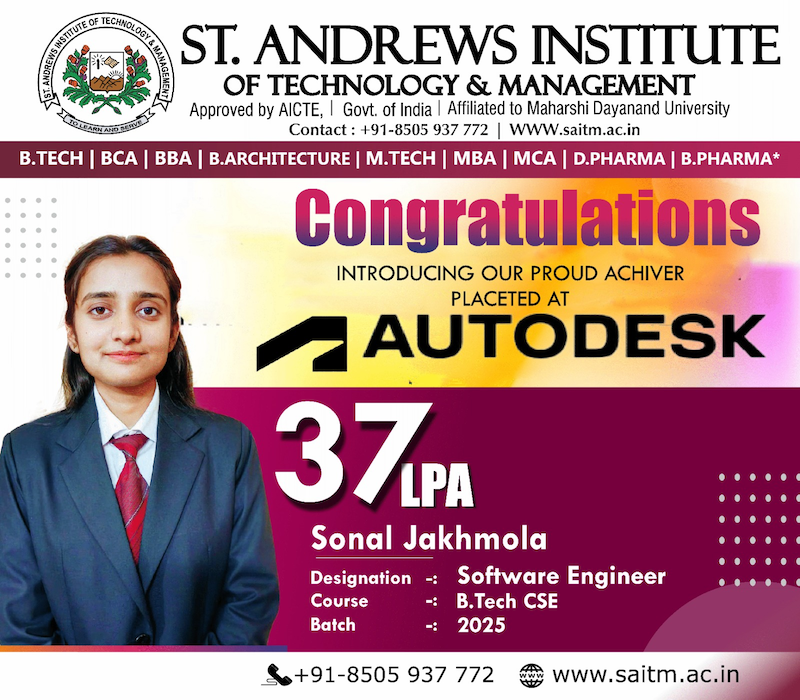
When comparing government and private BTech top colleges, several factors come into play. Here’s a breakdown of key differences:
Fees and Cost
Government Colleges: Generally have lower tuition fees and overall cost. The fees are subsidized by the government, making education more affordable.
Private Colleges: Often have higher fees due to the lack of government subsidies. The cost can be significantly higher, especially in top private institutions.
Infrastructure and Facilities
Government Colleges: Infrastructure may vary, with some institutions having older facilities. However, many government colleges have modern labs and libraries.
Private Colleges: Typically invest heavily in state-of-the-art infrastructure, including modern labs, libraries, and recreational facilities.
Quality of Education
Government Colleges: Often have a long-standing reputation and strong academic programs. Faculty can be highly experienced, and many institutions are involved in significant research.
Private Colleges: Quality can vary widely. Top private institutions often offer high-quality education and have industry connections. However, some may focus more on commercial aspects than academic rigor.
Admission Criteria
Government Colleges: Usually admit students based on national or state-level entrance exams like JEE Main, MHT-CET, or KCET. Cut-offs are often competitive.
Private Colleges: May accept students through various entrance exams, including their own. Some also have management quota seats which can be filled with higher fees.
Placement and Industry Connections
Government Colleges: Many have strong placement records and established connections with industries. Reputed institutions like IITs and NITs are well-known for their excellent placement.
Private Colleges: Placement records can vary. Top private institutions often have strong industry connections and high placement rates, but lesser-known ones might not have as robust placement support.
Alumni Network
Government Colleges: Generally have a strong and extensive alumni network, which can be beneficial for networking and career opportunities.
Private Colleges: Alumni networks can be strong, particularly in top institutions, but may not be as extensive as those of longstanding government institutions.
Career Opportunities for BTech Graduates
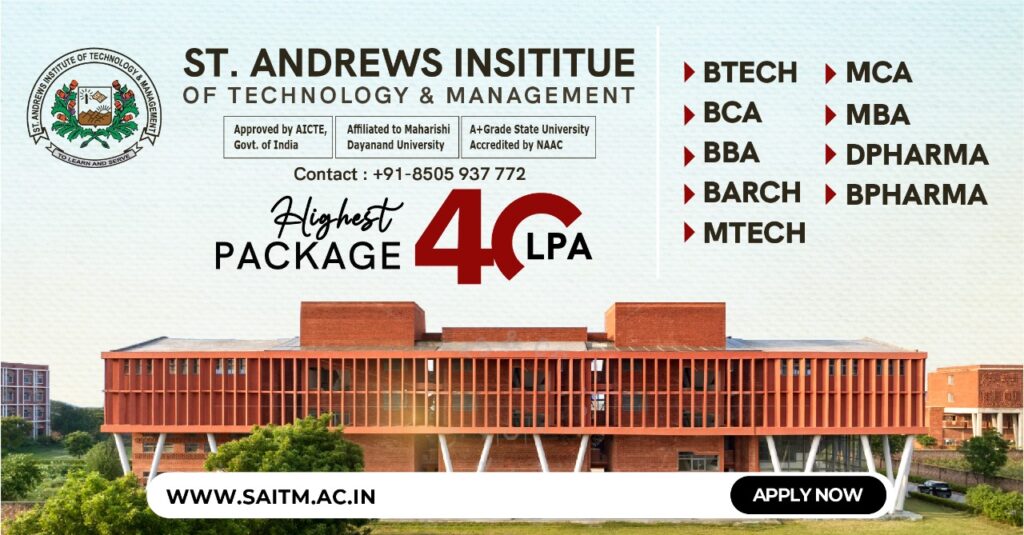
Here’s an overview of potential career paths:
Core Engineering Jobs
Software Engineer/Developer: Design, develop, and maintain software applications and systems.
Mechanical Engineer: Work on the design, development, and manufacturing of mechanical systems and machinery.
Civil Engineer: Focus on infrastructure projects such as buildings, roads, and bridges.
Electrical Engineer: Deal with electrical systems, power generation, and electronics.
Electronics Engineer: Work on electronic circuits, devices, and communication systems.
IT and Software Development
Data Scientist/Analyst: Analyze and interpret complex data to help organizations make informed decisions.
Cybersecurity Specialist: Protect systems and networks from cyber threats and attacks.
Cloud Solutions Architect: Design and manage cloud-based infrastructure and services.
Artificial Intelligence/Machine Learning Engineer: Develop AI and ML models and applications.
Consulting and Management
Management Consultant: Advise organizations on business strategies and improvements.
Project Manager: Oversee and manage engineering projects, ensuring they meet deadlines and budgets.
Operations Manager: Manage and optimize business operations and processes.
Research and Development
Research Scientist/Engineer: Conduct research and develop new technologies or products.
R&D Engineer: Focus on innovation and the development of new engineering solutions.
Manufacturing and Production
Production Engineer: Oversee manufacturing processes, quality control, and production efficiency.
Industrial Engineer: Optimize complex systems and processes in industries to improve productivity and reduce costs.
Entrepreneurship
Startup Founder: Launch and manage new technology or engineering-related ventures.
Freelancer/Consultant: Offer specialized engineering or technical services on a freelance basis.
Government Jobs
Public Sector Units (PSUs): Work in various government-run enterprises and sectors.
Civil Services: Pursue roles in administration and policy-making through competitive exams.
Financial and Management Roles
Business Analyst: Analyze business needs and processes to recommend solutions.
Financial Analyst: Evaluate financial data and assist in investment and financial planning.
Healthcare and Biotechnology
Biomedical Engineer: Develop medical devices and technologies.
Biotechnologist: Work on the application of biological processes in industries like pharmaceuticals and agriculture.
Telecommunications
Network Engineer: Design and manage communication networks.
Telecom Specialist: Work on the deployment and maintenance of telecommunication systems.
Top Companies Hiring BTech Graduates
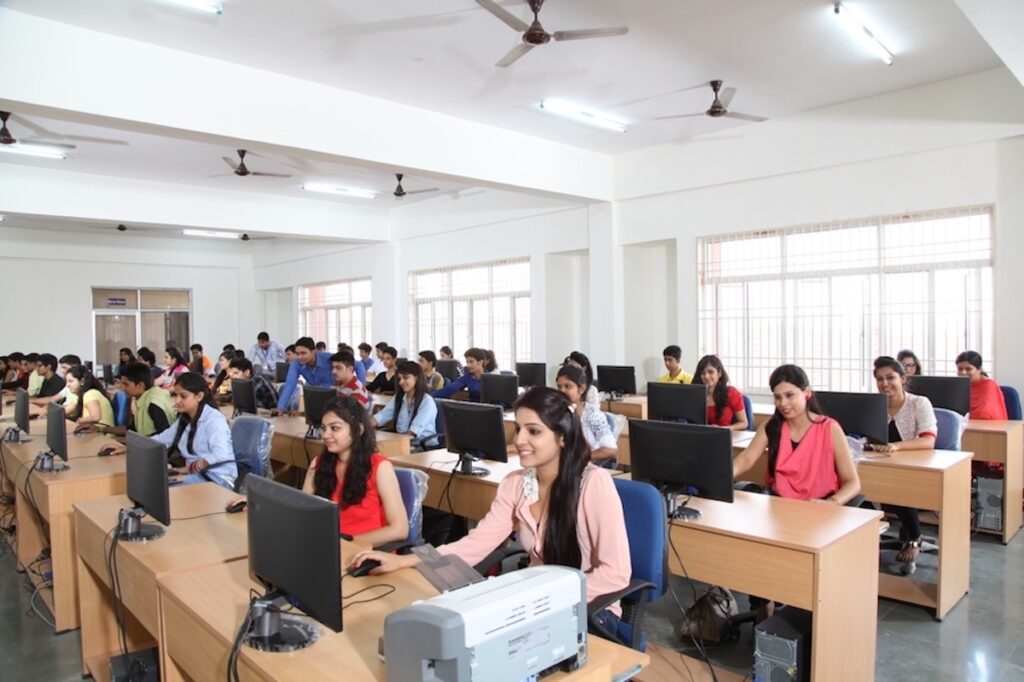
Here are some of the top companies known for hiring B.Tech graduates:
Information Technology and Software
Tata Consultancy Services (TCS)
Infosys
Wipro
HCL Technologies
Tech Mahindra
Cognizant
Accenture
IBM
Capgemini
Microsoft
Amazon
Adobe
Consulting
Deloitte
PricewaterhouseCoopers (PwC)
Ernst & Young (EY)
KPMG
McKinsey & Company
Boston Consulting Group (BCG)
Bain & Company
Finance and Banking
Goldman Sachs
J.P. Morgan
Morgan Stanley
Barclays
Citibank
HSBC
Standard Chartered
Manufacturing and Core Engineering
Larsen & Toubro (L&T)
Tata Motors
Mahindra & Mahindra
Bosch
Siemens
General Electric (GE)
Bharat Heavy Electricals Limited (BHEL)
Telecommunications
Bharti Airtel
Vodafone Idea
Reliance Jio
E-commerce and Retail
Flipkart
Myntra
Paytm
Startups and Unicorns
Ola
Swiggy
Zomato
Salary After BTech
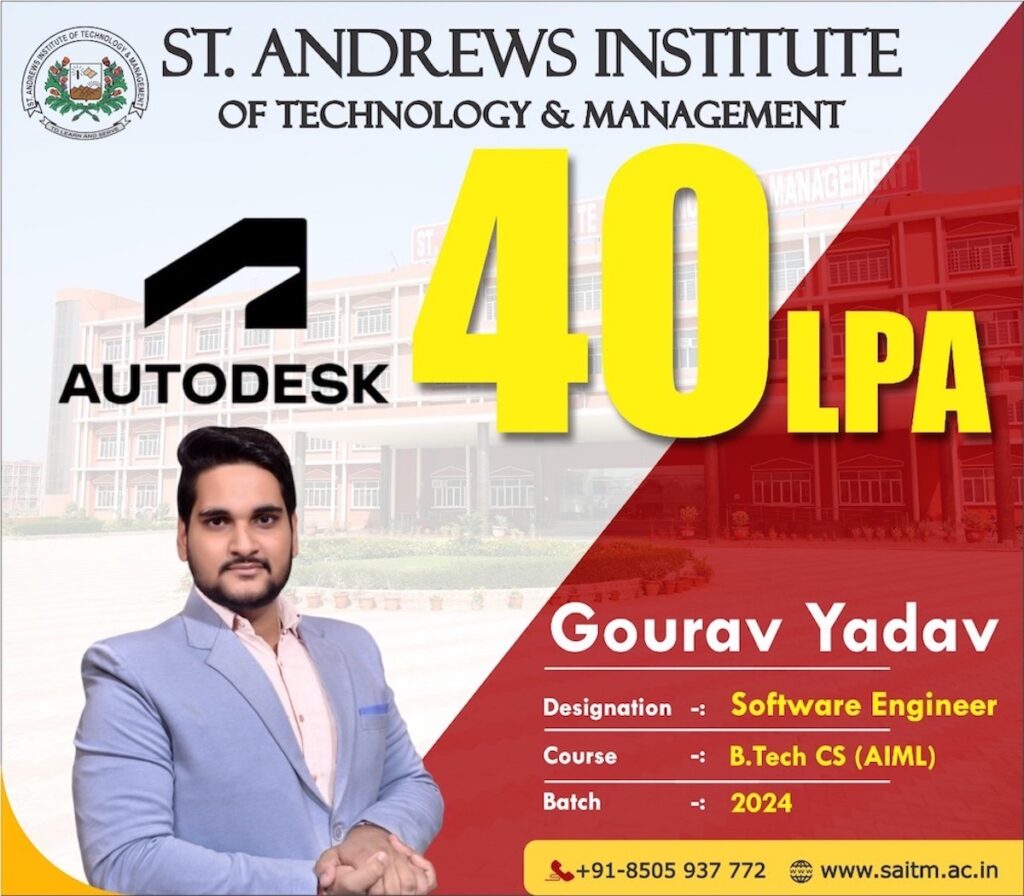
Here’s a brief overview of the typical salary ranges for B.Tech graduates in India:
Entry-Level (0-2 years)
- Average Salary: ₹3-6 lakhs per annum
Mid-Level (2-5 years)
- Average Salary: ₹6-12 lakhs per annum
Senior-Level (5+ years)
- Average Salary: ₹12-20 lakhs per annum
Specialized Roles (e.g., Data Scientist, AI Engineer, Cybersecurity Specialist)
- Average Salary: ₹10-30 lakhs per annum
Factors Influencing Salary
- Location: Salaries are generally higher in metro cities like Bangalore, Mumbai, and Delhi.
- Industry: IT and tech companies often offer higher salaries compared to core engineering sectors.
- Company: MNCs and large tech firms tend to pay more than smaller companies and startups.
FAQs
Which college is best for BTech in Delhi University?
The best college for BTech under Delhi University is the Delhi Technological University (DTU), formerly known as Delhi College of Engineering (DCE). Colleges in Delhi for BTech are renowned for their high academic standards, excellent faculty, and strong industry connections. DTU offers a comprehensive curriculum and state-of-the-art facilities and consistently ranks among the top engineering institutions in India. DTU’s robust placement record and vibrant campus life make it the preferred choice for aspiring engineers. Another notable institution is Netaji Subhas University of Technology (NSUT), known for its quality education and strong placement opportunities. Both DTU and NSUT are highly esteemed within Delhi University for engineering programs.
How many B Tech colleges are there in Delhi?
Delhi is home to numerous B Tech colleges, offering a variety of engineering programs. Colleges in Delhi for BTech include notable institutions like Delhi Technological University (DTU), Netaji Subhas University of Technology (NSUT), Indraprastha Institute of Information Technology (IIIT-Delhi), and Guru Gobind Singh Indraprastha University (GGSIPU), which affiliates several engineering colleges. Additionally, there are private institutions such as Amity University and Maharaja Agrasen Institute of Technology. In total, there are over 20 colleges in Delhi offering BTech programs, providing students with a wide range of choices for pursuing engineering education in the capital.
Which college has lowest fees for BTech in Delhi?
In Delhi, the college with the lowest fees for a BTech program is generally the Indian Institute of Technology Delhi (IIT Delhi), for students who qualify through competitive exams like JEE Advanced and receive various scholarships or fee waivers. Colleges in Delhi for BTech, such as Delhi Technological University (DTU) and Netaji Subhas University of Technology (NSUT), offer relatively affordable fee structures compared to private institutions. These colleges provide quality education at a lower cost due to government funding and subsidies. Fee structures can vary based on category (general, SC/ST, OBC), scholarships, and financial aid options available to students.
How to get admission in BTech in Delhi?
To get admission in a BTech program in Delhi, candidates must first qualify entrance examinations such as JEE Main for institutions like DTU, NSUT, and IIIT-Delhi, and JEE Advanced for IIT Delhi. Colleges in Delhi for BTech require meeting eligibility criteria, including passing 10+2 with Physics, Chemistry, and Mathematics. Candidates should then participate in the Joint Admission Counselling (JAC) for DTU, NSUT, IIIT-Delhi, and IGDTUW, or the specific counselling process for IIT Delhi. Successful candidates must complete document verification and pay the requisite admission fees to confirm their seats. Scholarships and financial aid may also be available for eligible students.
What are the fees of B Tech Colleges in Delhi?
Colleges in Delhi for BTech programs have varying fees across institutions. Public universities like Delhi Technological University (DTU) and Netaji Subhas University of Technology (NSUT) charge total tuition fees ranging from ₹1.5 to ₹2.2 lakhs. Indian Institute of Technology Delhi (IIT Delhi) charges around ₹2.25 lakhs per year. Private institutions such as Amity University and Maharaja Agrasen Institute of Technology typically have higher fees, ranging from ₹1.8 to ₹3.5 lakhs annually. These fees can be influenced by factors like category (general, SC/ST, OBC), scholarships, and financial aid options.

